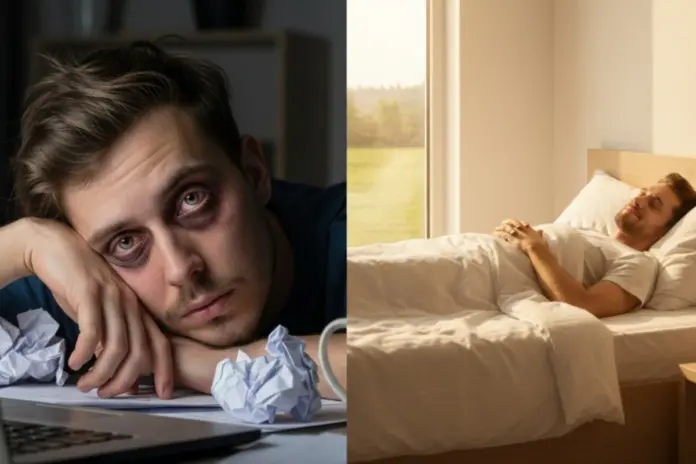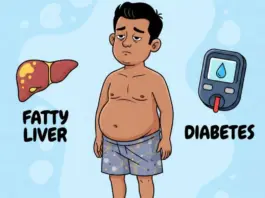Sleep is often the first thing we sacrifice in our busy lives. Between work, social life, and screen time, many of us cut back on rest, believing it will make us more productive. But health experts warn that sleeping less can have serious consequences, far beyond feeling tired. Health expert Prashant Desai recently shared a detailed video highlighting the dangers of chronic sleep deprivation.
He explained that poor sleep quality doesn’t just affect your energy levels – it can harm your heart, metabolism, immunity, and even your mental health. He says, “When you undersleep, there is not a single bodily function that does not get adversely impacted.”
Sleep Deprivation: Understanding Low-Quality Sleep
Desai defines low-quality sleep in four key ways:
Quantity: Sleeping less than 7 hours each night.
Consistency: Irregular sleep patterns across the week.
Quality: Waking up frequently during the night.
Timing: Not sleeping according to your natural chronotype (morning, evening, or intermediate).
He advises using tools like the MEQ questionnaire to understand your chronotype and align your sleep schedule accordingly.
Common Mistakes That Keep You Awake
Desai also listed nine common habits that reduce sleep quality:
Ignoring your chronotype: Staying up late even if you’re naturally a morning person.
Sleeping in a warm room: High temperatures prevent the body from cooling down, which is essential for sleep.
Bright lights at night: Light tricks your brain into thinking it’s daytime.
Going to bed hungry: Not eating can actually help you fall asleep, while late-night junk food keeps your body active.
Excess caffeine or alcohol: Both can disrupt your sleep cycle.
Using screens or watching intense content: Action movies, social media, or arguments keep your mind alert.
Too much noise: Loud music or TV can prevent deep sleep.
Skipping exercise: While counterintuitive, staying sedentary reduces natural sleep drive.
Drinking too many liquids before bed: Frequent trips to the bathroom interrupt sleep.
Desai emphasises that good sleep is not a luxury. It’s the foundation of health. People who sleep 7–9 hours consistently tend to have better heart health, stronger immunity, lower risk of diabetes and cancer, better mental wellbeing, and even improved energy and sexual health. Conversely, chronic undersleeping can increase the risk of heart attack, stroke, weight gain, and cognitive decline.
Sleep Deprivation: Practical Tips For Better Sleep
Stick to a consistent bedtime and wake-up schedule.
Make your bedroom cool, dark, and quiet.
Limit caffeine and alcohol in the evening.
Avoid screens at least an hour before bed.
Include daily physical activity to naturally tire your body.
Desai concludes, “Sleep is your opening batsman. All other health pillars – exercise, nutrition—sit on it. Protect your sleep, and your body will reward you in countless ways.”




